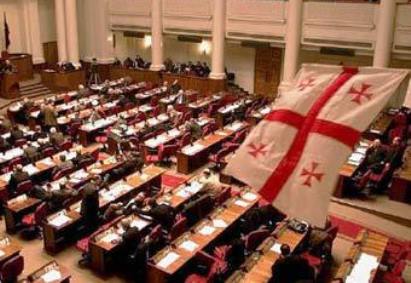According to the changes, if the Constitutional Court decides to suspend the activity of a controversial judicial act due to the fact that this may cause irreparable harm to one of the sides, the court will be obliged to make a decision on the case that was made on the lawsuit within 30 days.
On the decision of the court`s chairman this term can be extended to 15 days. In the case of the decision not being adopted in the set time, then the decision on suspending the activity of the controversial judicial act loses its force.
According to the active rules, the term of carrying out lawsuits in the court and respectively the terms of the suspension of the judicial act can be extended to a maximum of 11 months.
The second bill where the president also exercised the right of veto on May 10, refers to the opportunities of non-business (non-commercial) legal personalities to transform into the legal entities of public law.
In the bill that was adopted by parliament it is not indicated whether these changes refer to the universities. However, the authorities and opposition state that such changes prepared by the education ministry are aimed at the state universities.
According to the existing procedures, if the president does not sign the bills again where his veto was overridden, then the chairman of the parliament will do it and as a result the laws will come into the force.
More about:
















































